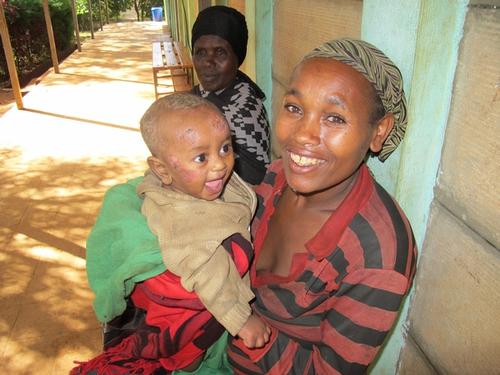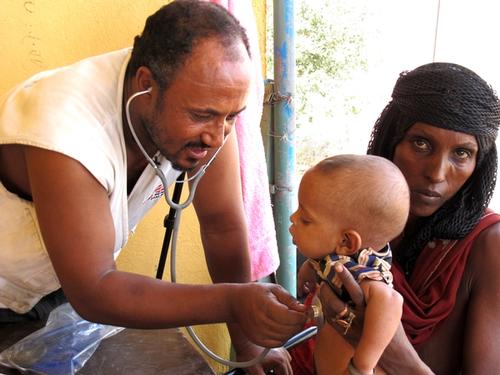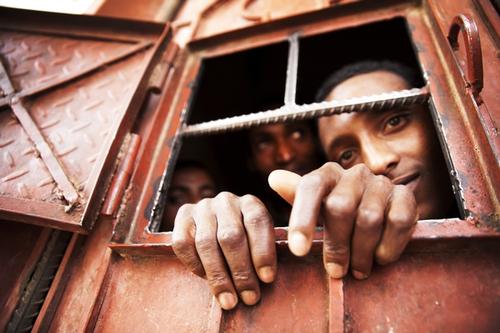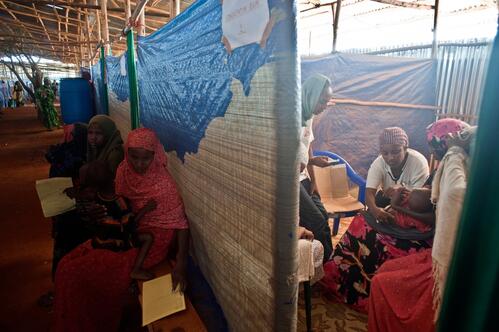Aroressa is a beautiful, green mountainous area, with small coffee plantations irrigated by natural waterfalls and streams that meander down the steep slopes of the valleys, with cliffs falling 300 metres and more. At the bottom, cattle graze alongside the streams and children play outside onion shaped huts, typical of the Sidama zone, south of Ethiopia.
Two Médecins Sans Frontières (MSF) programmes are located in these highlands, separated by dusty mountain roads of more than 80 kilometres. The beauty of the area can deceive the visitor regarding the very serious health problems faced by the population.
Health centres are scarce; as are qualified medical personnel, and maternal and child mortality rates are high. The mountainous terrain makes it difficult for pregnant women to trek to their nearest health centre, which could be 20 or more kilometres away.

MSF teams have met many stranded people ferrying sick people or pregnant women to a nearby health centre while driving or horse riding from one health centre to the other. Many lives have been lost on these wearisome journeys.
In a bid to reduce maternal and child mortality rates, MSF has established two mothers’ waiting houses, in the divisions of Chire and Mejo. These houses shelter heavily pregnant women who come from distant villages and cannot access medical assistance quickly, who are experiencing or have experienced complications during their pregnancy, or who have conditions requiring regular medical attention.
These women come to the waiting house, are examined by MSF’s medical staff and kept under regular observation so that in case urgent treatment is needed, immediate action can be taken.
“I came to the waiting house because I had pains and bleeding during my pregnancy and knew that MSF is offering help to expectant women,” says Birtu Kawato, a 25-year-old woman from Baya Faficho Kebele (division), staying at the MSF waiting house.
Uncomplicated births are assisted by an MSF midwife in the health centres, while women with complications are referred to nearby hospitals. Presently, each waiting house has a carrying capacity of 20 beds.
Since the establishment of the waiting house in Mejo in the final quarter of last year, 251 women have delivered successfully. Their satisfaction drives them to pass the message to other women in their communities.
“Most of these women trek for as long as eight hours from their villages to the waiting house just because they know MSF is here and they will get quality medical care,” states Eva Dominguez confidently, a nurse and midwife with MSF in Aroressa.
The waiting house is a way of encouraging women to seek medical assistance during delivery and to reduce maternal and child mortality in the area. It mostly targets women of child bearing age in the zone, which is presently estimated at 50,556.
In both health centres, MSF, in cooperation with the Ethiopian Ministry of Health provides antenatal and postnatal services, family planning and medical and psychological assistance to victims of sexual violence.





